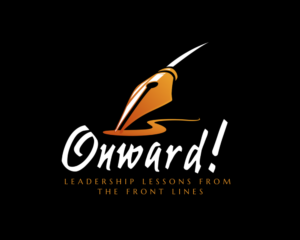While the farmer and the soil rests over winter, those of us in the ag supply chain meet. A lot. I can’t tell you how many supplier meetings I’ve attended over the past few months, but it’s been a lot. Three stand out. I remember them because while each company is financially successful, produces quality products and has people who operate with the highest integrity, I left each of the meetings feeling like we needed to consider additional suppliers. I’m sure that none of the companies intended our discussions to result in me feeling that way, so what happened?
Two of the companies spent nearly all their time explaining their size, their market share and their market share growth goals. The discussions centered around how we could help them achieve their goals and what would be in it for us if we did. The third company provided great insight into the global supply chain and the factors influencing the markets, but when the audience raised questions about surging pricing and its impact on farm economics, the leadership were emphatic that they operated for the sole purpose of maximizing the returns to their shareholders.
Having worked for three publicly traded companies, I understand the relentless pressure they face from investors. Having your fortunes rise and fall with the stock price tends to focus the mind on what drives that stock price. I also understand whether we’re public or not, the capital we depend on belongs to someone else and they rightfully expect us to earn strong returns from it. As Rivers Meyers, the CEO of Alabama Farmers, rightfully points out, “No margin, no mission.” We must make money. We are in a capital-intensive business and without margin, we can’t hope to do what we want for our growers. Indeed, many customer-owned businesses have sacrificed margin, chronically under-invested in their infrastructure and people, and ultimately succumbed to better capitalized, more efficiently run businesses.
But I struggle with the inward focus and pursuit of the bottom line above all else. Customers are not a means to an end. They ARE our end. Meeting our customers’ needs is why we — or any company — exists. In the crush of pressure on the bottom line, this can get lost.
At GreenPoint, our mission is to help our growers succeed in this ever-changing world. Whether we service them directly or whether they are serviced through our coops, we know if our growers are not successful, none of us in the supply chain will be. That’s why we exist.
Helping your customers succeed begins with understanding them deeply. Relationships are critical but not because people buy from their friends. They are critical because they enable you to better understand their business needs — the things that keep them up at night — so you can focus our energy on helping solve them. Price is a key piece, but the more I do this, the fewer customer problems I find where the best solution is the cheapest price.
Our best salespeople are our best problem solvers. They have built great relationships based on trust earned by understanding their customers’ needs and delivering consistently over time. Over time, our very best have transitioned from salespeople to trusted advisors, relied on as true partners in their operations.
I remember a meeting a few years back between one of my teams and several members of a key customer. After nearly four hours of back-and-forth discussions, several concrete ideas for better integrating our research and development, leaning out our supply chains, and better training their salespeople, there was a pause as the meeting began to wind down. I asked if there was anything else we could do better for them. Their lead person paused, chuckled and said, “Well I feel like I wouldn’t be doing my job if I didn’t ask for a better price.” Everyone laughed with him, as we all realized that it was the first time that pricing had come up. More importantly, we all could laugh because we’d just identified millions of dollars in joint cost savings — savings that if realized would dwarf any savings we could offer by selling at a cheaper price.
Meeting a customer’s needs doesn’t have to be complicated. The other day I was talking to one of our salespeople at the Mid-South Farm & Gin Show. One of his customers called, so he stepped away to take it. When he returned, I asked how it went. “Great” he said. “He asked for Roundup.”
“Do we have any?” I asked, knowing how tight supply is.
“Not the kind he wanted, so I just asked him what he needed. He said he needed to burn down his cover crop. I told him that if that’s what he needed, I could certainly take care of him. He was happy.”
At first glance, the farmer’s need was a specific product. But his real need was what the product would do for him. Only by taking the time to find out the deeper need were we able to help him.
So keep focused on your customers. It’s rough out there and they are under a lot of pressure. Care enough to do the work, to anticipate their needs before we arrive but then ask the questions and listen to their answers to confirm. Then help them solve the problems you can and be honest with them about those you can’t. If you do that, you’ll not only earn more of their business, but you’ll make damn good money in the process.
Onward!
Jeff





